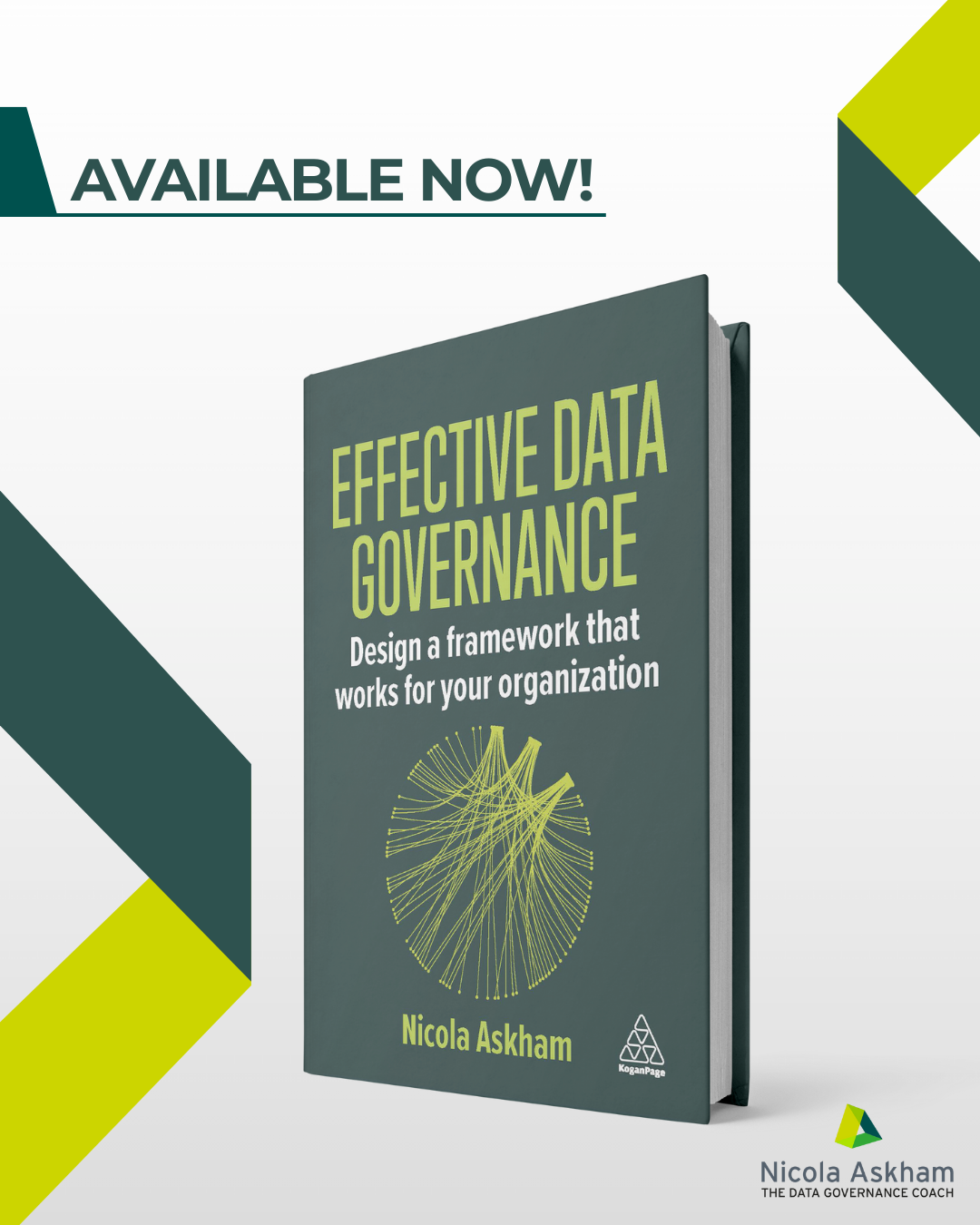Rupal Sumaria - Data Governance Interview
/I am really pleased that one of my clients has kindly agreed to share what it is like being new into a Data Governance role. Rupal recently changed roles from Business Intelligence Support Manager to Data Governance and Analysis Manager at Penguin Random House UK. In her role as BI Support Manager, she saw first-hand how Data Governance impacts Data Quality and focused her efforts on fixing issues, improving the process and wherever possible educating users on data rules. In her new position, Rupal will now focus on embedding good data culture and sharing existing best practices in Data Management and Quality across Penguin Random House UK.
How long have you been working in Data Governance?
I’m very new to Data Governance, taking on the role officially only a month ago!
How did you get into this area of work?
My boss Pete Williams, Director of Data and Online at Penguin Random House convinced me! He pitched Data Governance to me (warts and all) and I was sold. I’m still figuring out my role, and being able to set my own direction and path is very exciting.
What is driving your org to invest in this?
The publishing and media industries are undergoing huge changes as they respond to changing consumer behaviours, growth in our digital presence and new data-savvy competitors like Netflix and Amazon Prime as we compete for consumers’ leisure time.
In order to grow our business and ensure we are as data-savvy as our competitors, it is vital we maintain clean data and embed a framework that supports our future.
Why is data governance important to you?
Data is created, stored and used in every aspect of the publishing business, but data concepts can feel really abstract in a highly creative industry. As a result, we need to empower and engage users to have honest and open discussions about data.
Part of data governance is to change the mindset that data quality, management or storage is solely a technology problem, as data issues affect decision making across the board. It’s exciting to lead conversations about Data Governance and hopefully make an impact on the business.
What tips have you been given so far?
The top tips I have been given are:
1. Create a strong business case that aligns to your business strategic goals so that Data Governance resonates with your senior leaders and they support the initiative.
2. Don’t shy away from challenging areas that think they have perfect data.
3. Don’t focus on what you call Data Governance; it’s the practice, people and process that are important.
4. Don’t worry about who takes on what role, i.e. Data Owners, Stewards, etc. It is more important to have a process that allows for Data Quality Issue Resolution.
and were they useful?
The advice is all very sound and simple but harder than it seems!
1. The business case proved to be the easiest of the tasks as we were very prepared and our senior leaders responded positively to the initiative.
2. It can feel quite intimidating working with senior leaders but luckily Penguin Random House leaders are very friendly, understanding and patient.
3. The Governance term felt very heavy-handed and as our business is very focused on the power of words, we changed the name to Data Management and Quality.
4. This has been the most challenging, we very quickly got caught up on trying to assign roles without really taking stock of our Data Domains. We are now working to re-focus on the process, making sure to give everyone the support and resources they need for their roles.
What tips would you give to someone at the same stage?
Data Governance can be daunting. Talk to people that already work in Data Governance to seek advice and make sure you have a sponsor from your leadership team.
Also, don’t underestimate how much time you might spend organising people into workshops and arranging meetings to get Data Governance off the ground.








